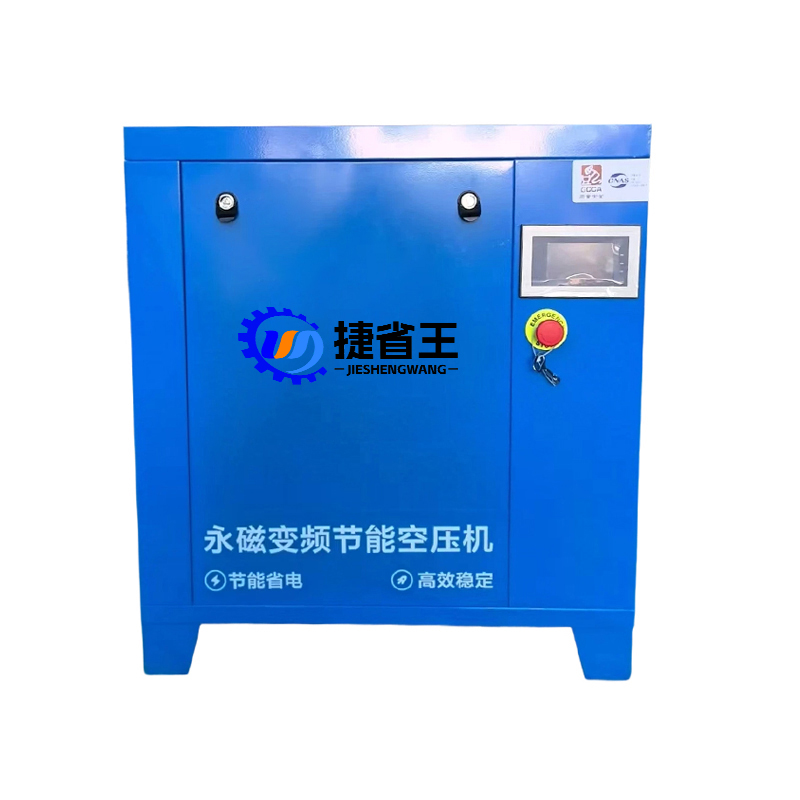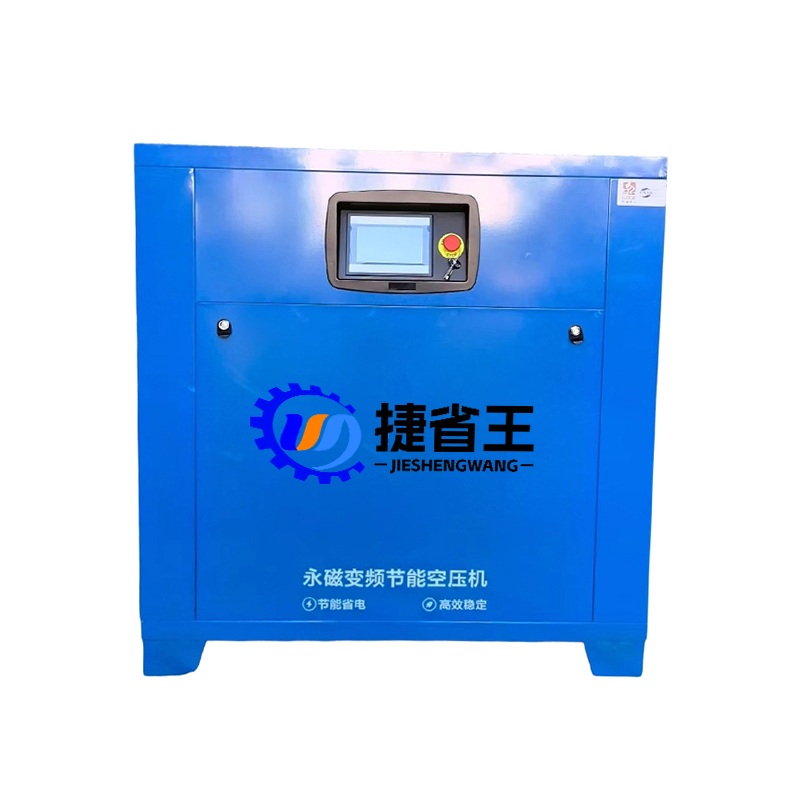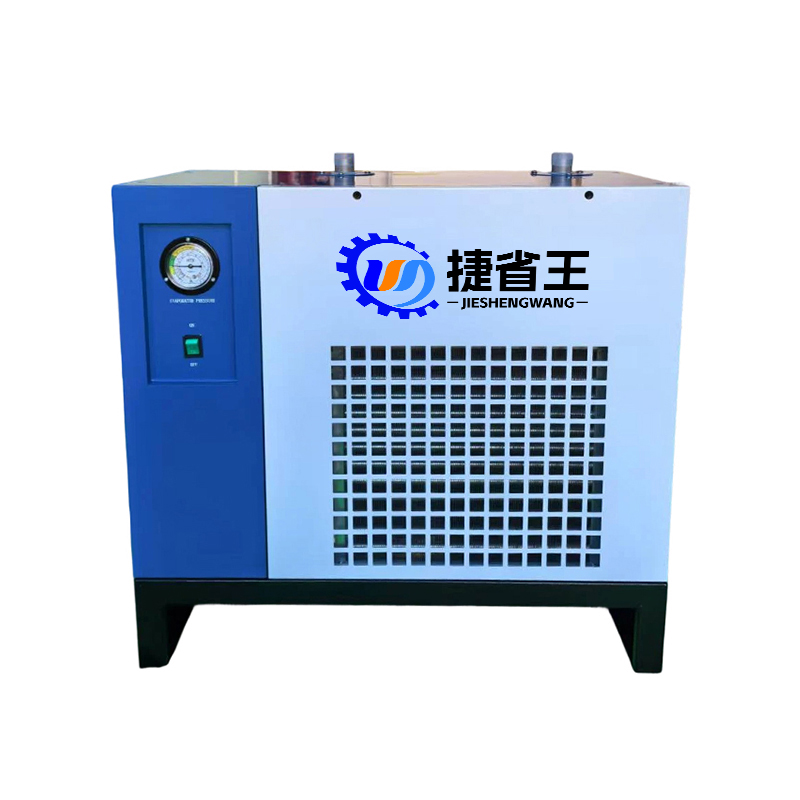What are the effects of long-term low-load operation of a permanent magnet variable frequency air compressor?
Release Time : 2025-11-10
Permanent magnet variable frequency air compressors are widely used in industrial fields due to their high efficiency, energy saving, and precise control. However, long-term low-load operation can have multi-dimensional impacts on their performance, energy efficiency, and lifespan, requiring comprehensive analysis from the perspectives of motor characteristics, inverter losses, thermal management, pipeline matching, maintenance costs, and economics.
Permanent magnet motors may face efficiency degradation during low-load operation. Traditional asynchronous motors experience a significant decrease in efficiency at low loads. While permanent magnet motors reduce excitation losses through permanent magnet excitation, insufficient magnetic field strength at extremely low loads (such as below 30%) can lead to an increase in iron losses, resulting in a decline in efficiency. This efficiency degradation not only increases energy consumption per unit of air production but may also cause temperature increases due to motor heating, accelerating insulation material aging and shortening motor lifespan.
As the core control component of the permanent magnet variable frequency air compressor, the inverter's own power consumption may become an energy efficiency bottleneck during low-frequency operation. Inverters regulate motor speed by adjusting the output frequency, but at low frequencies (e.g., below 30Hz), the switching losses of internal components such as reactors and IGBT modules increase significantly, leading to higher overall energy consumption. Some cases show that inverter power consumption at low frequencies can be more than three times that at the base frequency (50Hz), directly offsetting some of the energy savings.
The failure risk of the thermal management system is another hidden danger under low-load operation. Permanent magnet variable frequency air compressors typically rely on lubricating oil circulation and a cooler to achieve thermal balance, but at low loads, reduced air production and lubricating oil flow can lead to decreased cooler heat exchange efficiency. If the cooler is clogged or the temperature control valve malfunctions, the lubricating oil temperature may remain consistently high, further exacerbating the risk of motor demagnetization. Neodymium iron boron permanent magnets exhibit significant magnetic degradation at high temperatures, and prolonged high-temperature operation may lead to irreversible demagnetization, affecting motor performance.
The issue of pipeline pressure fluctuations and equipment matching is particularly prominent under low-load conditions. Permanent magnet variable frequency air compressors achieve precise pressure control by adjusting speed, but at low loads, pipeline pressure fluctuations may be exacerbated by instantaneous changes in air consumption. If pressure fluctuations exceed the equipment's design range, it may lead to frequent safety valve activation, seal leaks, and other problems, increasing maintenance costs. Furthermore, some users, in pursuit of extreme energy efficiency, operate equipment at extremely low loads for extended periods, which can cause compressor surge and affect equipment stability.
The trade-off between maintenance costs and economic efficiency must be considered in long-term operation. During low-load operation, the reduced lubricating oil circulation speed may exacerbate impurity buildup in the oil system, leading to filter clogging and decreased oil separator efficiency, increasing replacement frequency and maintenance costs. While low-load operation reduces unit power consumption, if the equipment is oversized, resulting in an actual load rate consistently below a reasonable range (e.g., below 40%), the overall economic efficiency may be weakened due to factors such as initial investment cost amortization and increased maintenance costs.
Optimization strategies for low-load operation can be developed from three aspects: equipment selection, control strategies, and maintenance management. When selecting equipment, the gas demand fluctuation curve should be considered to choose equipment with rated power that matches the actual load, avoiding "over-powered equipment." In terms of control strategy, intelligent control systems can be used to link multiple devices, automatically adjusting the operating combination according to gas demand to ensure the load rate remains within the high-efficiency range. Regarding maintenance and management, regular maintenance such as cooler cleaning and oil filter replacement should be strengthened, and remote monitoring systems should be used to monitor equipment operating parameters in real time and provide early warnings of potential faults.
While long-term low-load operation of a permanent magnet variable frequency air compressor can achieve some energy savings, risks such as motor efficiency degradation, increased inverter losses, thermal management failure, pipeline matching problems, and increased maintenance costs must be considered. Through scientific selection, optimized control strategies, and strengthened maintenance and management, the energy-saving advantages can be maximized while ensuring stable equipment operation.






